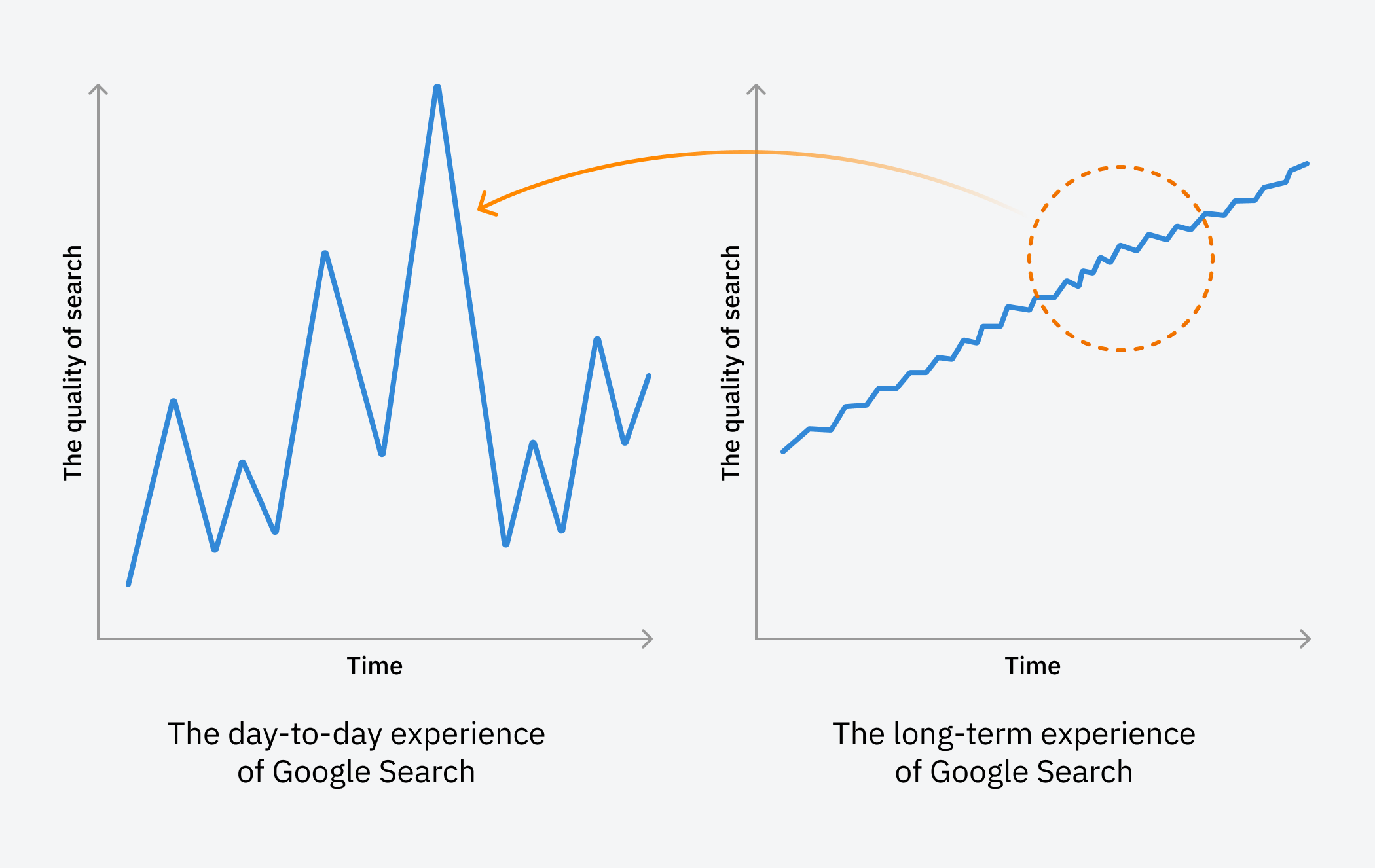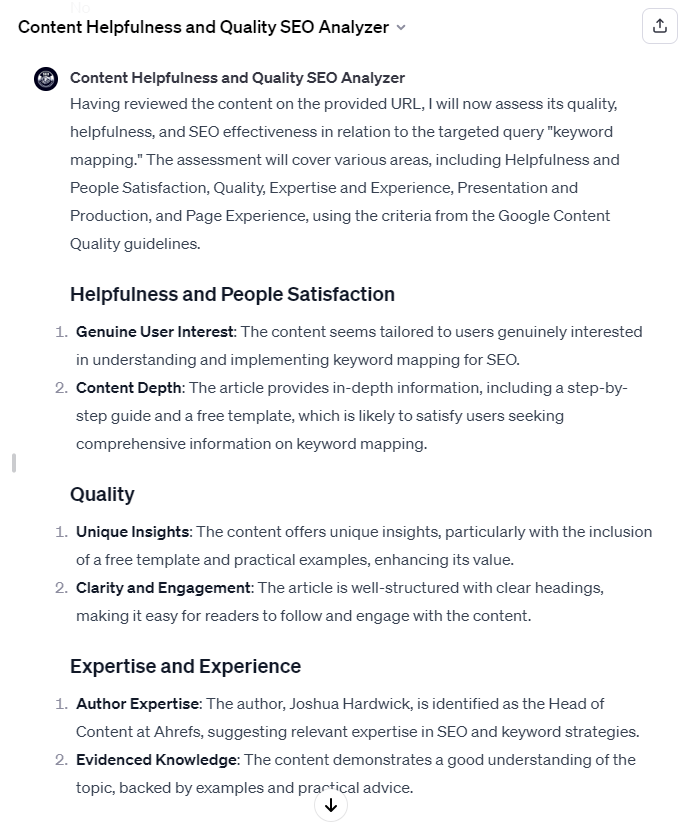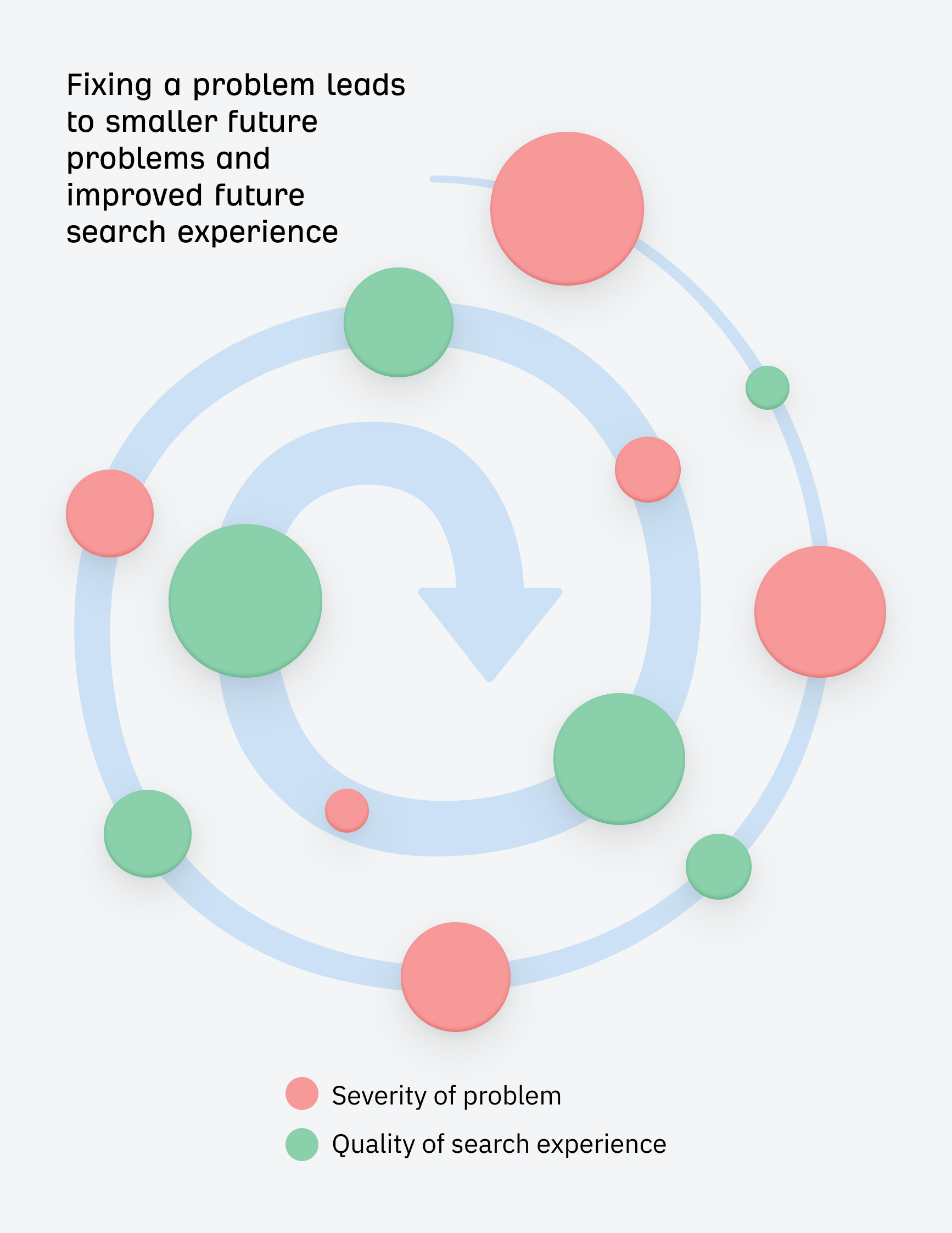SEOs catch flak for ruining the web, but they play a crucial role in the search ecosystem, and actually make the internet better for everyone.
Let’s get the criticism out of the way. There are bad actors in SEO, people who seek to extract money from the internet regardless of the cost to others. There are still scams and snake oil, posers and plagiarists. Many parts of the web have become extremely commercialized, with paid advertising and big brands displacing organic and user-generated content.
But while there are situations where SEOs have made things worse, to fixate on them is to ignore the colossal elephant in the room: in the ways that really matter, the web is the best it’s ever been:
- It’s the easiest it has ever been to find information on the internet. Searchers have a staggering array of tutorials, teardowns, and tips at their fingertips, containing information that is generally accurate and helpful—and this was not always the case.
- Bad actors have a smaller influence over search. Search is less of a Wild West than it used to be. Once-scam-ridden topics are subject to significant scrutiny, and the problems and loopholes in search that need fixing today—like big brands and generic content receiving undue prominence—are smaller and less painful than the problems of the past.
- More people use search to their benefit. Online content is the most accessible it has ever been, and it’s easier than ever to grow a local business or expand into international markets on the back of search.

SEOs have played a crucial role in these improvements, poking and prodding, building and—sometimes—breaking. They are Google power users: the people who push the system to extremes, but in doing so, catalyze the change needed to make search better for everyone.
Let’s explore how.
SEOs are much-needed intermediaries between Google and the rest of the world, helping non-technical people acquire and benefit from search engine traffic.
There is a huge amount of valuable information locked up in the heads of people who have no idea how to build a website or index a blog post. A carpet fitter with a bricks-and-mortar business might have decades of experience solving costly problems with uneven subfloors or poor moisture management, but no understanding of how to share that information online.
SEOs provide little nudges towards topics that people care about and writing that’s accessible to people and robots. They help solve technical problems that would hinder or completely block a site from appearing in search results. They identify opportunities for companies to be rewarded for creating great content.
It’s a win-win: businesses are rewarded with traffic, searchers have their intent satisfied, and the world is made a little richer for the newfound knowledge it contains.
SEOs do many things to actively make the web a better place, tending to their own plot of the Google garden to make sure it flourishes.
Take, for example, the myriad standards and guidelines designed to make the web a more accessible place for users. The implementation of these standards—turning theoretical guidelines into real, concrete parts of the web—often happens because of the SEO team.
Technical SEOs play a big part in adhering to the Web Content Accessibility Guidelines, a set of principles designed to ensure online content is “perceivable, operable, understandable, and robust” for every user. Every SEO’s fixation with Core Web Vitals fuels a faster, more efficient web. Content teams translate Google’s helpful content guidelines into useful words and images on a page.
(Case in point: check out Aleyda Solis’ Content Helpfulness Analyzer.)


There is a lot of overlap between “things that help users” and “things that improve search performance.” Even if the motive behind these changes is as simple as generating more traffic, a well-optimized website is, generally speaking, one that is also great for real human beings trying to engage with it.
The biggest criticism leveled at SEOs is that they break things. And they do! But that breakage acts as a type of pressure testing that strengthens the system as a whole.
Abuse of spintax and keyword stuffing forced Google to develop a better understanding of on-page content. Today, that loophole is closed, but more importantly, Google is much better at understanding the contents of a page and its relationship to a website as a whole.
Hacks like hiding keywords with white text on a white background (or moving them beyond the visible bounds of the screen) forced Google to expand its understanding of page styling and CSS, and how on-page information interacts with the environment that contains it.
Even today’s deluge of borderline-plagiarised AI content is not without benefit: it creates a very clear incentive for Google to get better at rewarding information gain and prioritizing publishers with solid EEAT credentials. These improvements will make tomorrow’s version of search much better.
This isn’t just Google fixing what SEOs broke: these changes usually leave lasting benefits that extend beyond any single spam tactic and make search better for all of its users.


This is not to argue that blackhat SEO is desirable. It would be better to make these improvements without incurring pain along the way. But Search is huge and complicated, and Google has little incentive to spend money proactively fixing problems and loopholes.
If we can’t solve every issue before it causes pain, we should be grateful for a correction mechanism that prevents it—and more extreme abuse—from happening in the future. SEOs break the system, and in doing so, make future breakages a lot less severe.
Some SEOs take advantage of the loopholes they discover—but many don’t. They choose to raise these issues in public spaces, encourage discussion, and seek out a fix, acting like a proxy quality assurance team.
At the small end of the spectrum, SEOs often flag bugs with Google systems, like a recent error in Search Console reporting flagged independently by three separate people, or Tom Anthony famously catching an oversight in Google’s Manual Actions database. While these types of problems don’t always impact the average user’s experience using Google, they help keep search systems working as intended.
At the other end of the scale, this feedback can extend as far as the overarching quality of the search experience, like AJ Kohn writing about Google’s propensity to reward big brands over small brands, or Lily Ray calling out an uptick in spam content in Google Discover.
SEOs are Google’s most passionate users. They interact with it at a scale far beyond the average user, and they can identify trends and changes at a macroscopic level. As a result, they are usually the first to discover problems—but also the people who hold Google to the highest standard. They are a crucial part of the feedback loop that fuels improvements.
Lastly, SEOs act as a check-and-balance, gathering firsthand evidence of how search systems operate, letting us differentiate between useful advice, snake oil, and Google’s PR bluster.
Google shares lots of useful guidance, but it’s important to recognize the limits of their advice. They are a profit-seeking company, and Search requires opacity to work—if everyone understood how it worked, everyone would game it, and it would stop working. Mixed in with the good advice is a healthy portion of omission and misdirection.
Google Search plays a vital role in controlling the flow of the web’s information—it is simply too important for us to leave its mechanics, biases, and imperfections unexplored. We need people who can interrogate the systems just enough to separate fact from fiction and understand how the pieces fit together.
We need people like Mic King, and his insanely detailed write-up of SGE and RAG; Britney Muller and her demystification of LLMs; the late Bill Slawki’s unfaltering patent analysis; or our own Patrick Stox’s efforts in piecing together how search works.


Final thoughts
The web has problems. We can and should expect more from Google Search. But the problems we need to solve today are far less severe and painful than the problems that needed solving in the past; and the people who have the highest expectations, and will be most vocal in shaping that positive future, are—you guessed it—SEOs.
To SEOs: the cause of (and solution to) all of the web’s problems.




